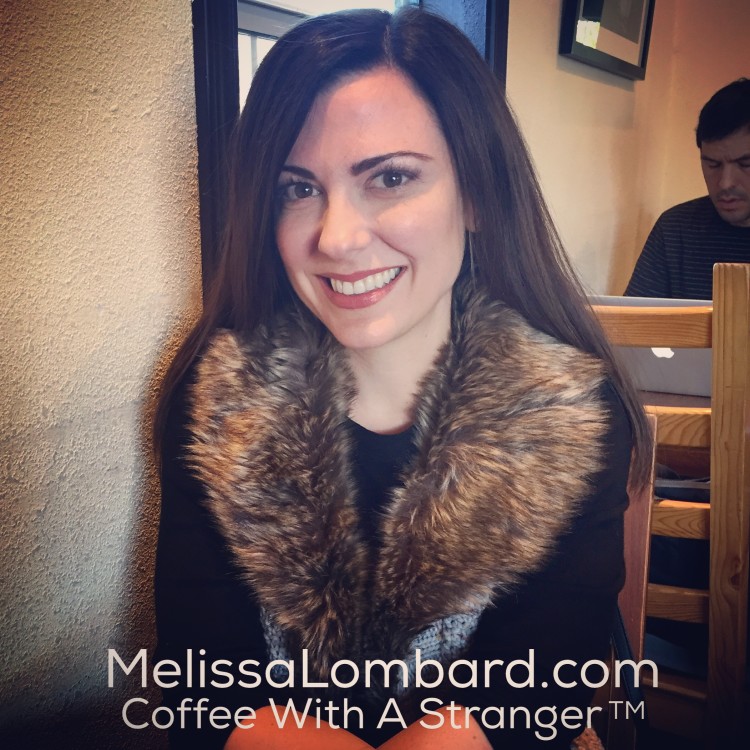 The Place: Cafe Medici
The Place: Cafe Medici
The Cup: A cortado for me, and Meg had a coffee.
The Background: Former stranger, now dear friend Cup 86, Ray Bard sent an email introduction a few weeks back and suggested that Meg and I would enjoy getting to know one another. Ray, who is right about most things, did not let me down. Meg was not only warm, open and interesting, she’s incredibly thoughtful and intellectual. I enjoyed my time with her immensely and hope to do it again someday soon.
Before we get into Meg’s fascinating story, let’s cover some:
Common Grounds:
- What is the best place to eat in Austin? Uchi
- What is the best way to unwind? Dinner date with my husband. We go out a lot! Our kids go to bed early. They’re asleep by 7pm.
- What is the last thing you fixed? A toy dog guitar.
- What’s a food you can’t live without? Peanuts and oysters. But not together. Ever. And coffee.
- How did you make your first buck? I had a brother who died when I was in the 4th grade. He was 14 months older than I was. He died suddenly from carbon monoxide poisoning. One day he was there and the next day he was gone. When I was going through a really rough time, my grades were starting to slip. My parents said that they would pay me for every “A” and I got a kicker if I got all A’s. I don’t even remember what I wanted to do with the money, but I think attaching a goal to it resonated with me. It worked.
- What’s the most amazing book you’ve read recently? Between The World and Me by Ta-Nehisi Coates It’s an absolute game-changer. It won National Book Award, it won the Kirkus Prize, and it should win every award! It’s a letter a man wrote to his son about being black in America. It’s angry, and it’s sad, and so insightful. And it gives you a glimpse into a world; a way of thought that I don’t think has ever been explained with such clarity to people who don’t live in that world. All that aside — if he had been writing about floor tile, content aside, his writing is like poetry. It’s beautiful. This book really, really moved me. In some ways that I like and in some I don’t. It’s a real achievement. Everybody should read this book.
Bibliophile
That is a glowing review! Especially coming from someone like Meg, who loves books so utterly and completely. When she describes a book, her face changes, her eyes light up and she emotes as if she’s talking about someone beloved. She talks about authors in the same way someone might describe a personal mentor or someone who has impacted their life in a significant way. It’s clear she appreciates the power of good storytelling and the talent required to connect with a reader’s heart and mind.
This is why it’s no surprise when her answer to the question, “If happiness were the national currency, how would you make your living?” is , “I’m doing it!”
Meg is the CEO of Kirkus Reviews. A little description from their website, if you aren’t familiar:
Founded in 1933, Kirkus has been an authoritative voice in book discovery for 82 years. Kirkus Reviews magazine gives industry professionals a sneak peek at the most notable books being published weeks before they’re released. Kirkus serves the book reviews to consumers in a weekly email newsletter and on Kirkus.com, giving readers unbiased, critical recommendations they can trust.
Kirkus also has a full suite of author services, including Kirkus Indie, a book review service for self-publishers, Kirkus Editorial, book editing services for unpublished and self-published authors, and Kirkus Marketing, services that help authors get discovered by consumers as well as industry influencers, such as publishers, agents and film executives.
Turn Around
It’s a really cool company. Cool doesn’t pay the bills, though. In 2009, the company closed its doors.
30 days later, like a Phoenix rising from the ashes, Kirkus was given a second chance when Herb Simon purchased Kirkus – eventually hiring Meg to breathe new life into the 80-year-old company. It didn’t happen overnight, but with time the company turned around and they not only got out of the red, but are now solidly in the black and growing every year — significantly.
A huge reason for that growth is their willingness to embrace self-published authors, when others in the industry were treating them like second-class citizens. Kirkus recognized that given proper tools and support, these authors could put out the same quality as authors who were published through traditional means.
Embracing Disruption
Meg says, “Self-publishing, or what we call ‘Indie Authors’, used to be almost hidden on the website. Now it’s celebrated. There’s a lot of shady stuff in the self-publishing world, and big publishers aren’t doing it well. We make it easy. It’s online and it’s affordable. We’ve built out a network of editors — some are still working full-time at the top five publishers, and just work for us part-time. Ever since my days of public relations (for authors), it’s pained me to have a great author who just needed a publisher.”
Beyond the joy of helping new authors and the pride of knowing you’ve helped turn a company around, Meg loves the people she works with. She says, “We talk about books all year round. We argue about books. It’s a utopia. The intentions of everyone there are inspiring to be around. It’s pure. We’re all in it for the same thing. And Kirkus is a happy story in the industry. We’re the good news story in an industry where there’s a lot of bad news.”
The Big Prize
When I ask Meg about the most significant thing that’s happened to her in the last 30 days, she says, “Giving out the Kirkus Prize. Leading up to it everyone at Kirkus was reading the books and debating which ones we wanted to win. Publishers come, the authors come and we have a big party at the Four Seasons. We have a beautiful piece of art commissioned for the awards, and we also give away more than any other literary award in the country. We give away $50K in 3 categories. Writing is such a solitary profession. So it’s really nice to see my team all together. And then to see the writers all together. It’s a special moment in time. I want to bottle it up and never leave.” What a lovely way to feel about your “job”.
Perspective
I asked Meg to tell me something she believes that pretty much everyone else thinks is crazy and she says, “I believe that there is a lot of value in surrounding yourself with ‘no’ people, instead of ‘yes’ people. I like hiring people who challenge me and challenge every idea. I think it’s dangerous not to do that. I’m perfectly fine with people making fun of my ideas, which happens regularly because of the kind of people I hire. It’s not as common for people to welcome criticism. I guess you could say we’re (Kirkus) in the business of criticism. There’s value in it. Even if you choose not to accept it — it’s better to have listened. It’s a growth opportunity.”
“When I lost my brother, it was a big turning point for me. I became a very deep nine-year-old. Well, actually, nine is pretty fuzzy. I became a deep 10-year-old. In 5th grade I felt very, very old. I remember thinking I felt older than my friends. I think because of that terrible situation, things didn’t bother me. If someone said something about me, I just moved on. I was sort of morbid; I thought a lot about death. And about life. It was just so fast. I was dealing with something so heavy and all these other things just seemed so light. Including criticisms. I think it comes from the perspective of figuring out what’s really important in life and what isn’t.”
“When people are attached to an idea, they’re giving that idea too much power. Maybe life isn’t about that. Maybe you need to focus on bigger things. Losing my brother was a defining moment. Things feel very temporary, in a way. When I finally came up for air, it was like, ‘Okay, so that was hard, and I got through that. Even that was temporary. No matter what happens, eventually, I will come back to life.’ I think it made me a little more resilient.”
Moves Like Jagger
If Meg had a year to get really good at something, she tells me it would be some kind of dancing. She says, “I’d probably take a hip-hop dance class.” She laughs and adds, “Nothing that stimulates your brain, that’s for sure.”
I’m fascinated by the daily habits of people I admire, who are successful and leading full, rich lives. Meg shares hers, and it’s not a bit surprising. She say, “I read every day. I read all the time; every chance I get. I have a Kindle and if it’s a book that hasn’t come out, I’ll read a galley. But I prefer my Kindle Paperwhite.”
I ask Meg about something she believed to be true for a long time, but now knows differently. She tells me, “So many things. I’m always finding out things that I thought I knew. I used to think that intelligence was the biggest factor in success. I think part of that comes from school. After you grow up you realize that some of the smartest people you know, aren’t that successful.”
Faces of Love
Something Meg thinks people might be surprised to learn about her is that she has a son with special needs. She shares, “A lot of my life is built around him, and around what my husband and I can do to support him and our other son. It took a long time to get the diagnosis because he’s smiley and he’s affectionate. He had a severe speech delay. He made a lot of sounds but spoke no words until 3 1/2. At around 16 months we knew something was up. He was evaluated 12 times by 17 professionals. They never ruled it out, because they don’t do that, but it took a long time to get the diagnosis because he was missing some characteristics of autism. He’s very smart and smiley. But once he started talking, it became clear. His symptoms present verbally.”
“He is the sweetest, funniest dude. We have a lot of therapies and interventions. It’s a lot of work. But he’s so sweet and really loving and funny, funny. When he was first diagnosed, I thought it would mean he wouldn’t be able to fully experience love, and that seemed like the saddest thing. But then I got to know my son and so many other people. He expresses love differently, you just have to be open to receiving it in a more unique way. Once you know him, you love him. People get hooked on him.” I saw pictures of the boys and can confirm, the cuteness quotient is off the charts on both of them!
Wide Open
If she had 30 seconds to make a speech to the world, Meg’s message is this, “A theme that moves me constantly is openness — especially openness to good things. I think that if we keep constantly talking about fear, then that’s going to be all we see. If you’re focused on the direction you don’t want to go, that’s where you’re going to end up. You’re not going to get where you want to go by looking at where you don’t want to go. I think being open to the positive side of things rather than finding and focusing on the negatives and getting fearful is something to aim for. Maybe think about something nice and find a way to have more compassion. I’ve seen fear do really bad things, but I’ve never seem compassion hurt anyone. Be open to failure and forgiving. There’s so much ‘pass/fail’ in our society, and judgment of everybody, in politics, relationships, and with ourselves. If you or someone else fails at something, forgive and move on.”
Meg’s story is filled with timely messages for all of us, but there are three in particular that bubble up for me.
First, the importance of remembering just how little we know about the people we interact with, particularly when we might be tempted to pass judgment. The fact is, you can look at someone and never possibly know the whole story. There are joys and sorrows, abilities and disabilities that aren’t, in any way, evident on the exterior.
Second, people show love the only way they know how and often, it’s up to us to decipher it. Meg’s son is full of love, but it took a little time for Meg to crack the code. Before we got married, Dave and I were given The 5 Love Languages by Gary Chapman and I’ve since given that book as a gift many times. It’s fantastic! Just the other day, I read an article of how to use the lessons from the book to make your holidays more enjoyable. Take 10 minutes and read the article. I think you’ll enjoy it! Essentially, it’s a reminder to let people off the hook when they don’t express love the way you want to receive it (you get diamonds when you really wanted that new vacuum) or, when the love you give isn’t appreciated (you bake for days and he just wanted you to tell him he’s the best part of your day). Love is certainly the answer, but it may require some interpreting.
Finally, Meg’s message of forgiving and moving on from failure could not be more pertinent as we approach the frenzy of the holidays. Parties to plan, gifts to wrap, cookies to frost — the list could be endless, if we let it be. What gets done, gets done. And there’s a good chance none of it will be done perfectly. It’s okay. Really, it is.
As we busily stick ribbons and bows on gifts we hope people will love, let us consider giving three gifts that are priceless. Unconditional acceptance, love and forgiveness. Perfect for everyone on your list — starting with the list-maker. Do the best you can, love the people around you in the way that feels right and if you don’t get the vacuum you’ve been hoping for, go out and buy it yourself!

